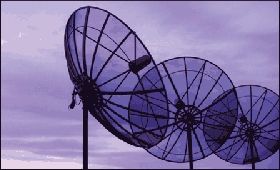|
|
|

|
Telecom tower firms seek more relief, priority lending
|
|

|
|
| Top Stories |
 |
|
|
|
SME Times News Bureau | 17 Jun, 2019
The telecom tower industry has urged the Finance Ministry to allow
accelerated depreciation rate of 65 per cent on batteries, 20 per cent
funding through External Commercial Borrowings (ECB) for the working
capital and inclusion of telecom towers in the priority sector for
lending by banks.
The industry uses lithium ion batteries, which
have an average life of 3-5 years. A higher depreciation rate for these
batteries can help higher adoption of these batteries, which can
decrease dependence on diesel for power back-up. Diesel adds to the
higher cost of production for the tower companies.
Accelerated
depreciation is a method whereby an asset loses book value at a faster
rate than the traditional straight-line method. Generally, this method
allows greater deductions in the earlier years of an asset and is used
to minimise taxable income.
Apart from these key demands, the
Tower and Infrastructure Providers Association (TAIPA) in its submission
to the Finance Ministry, said it wants inclusion of the telecom
infrastructure service providers in Section 72A in the cases of mergers
and amalgamations.
As tower industry is an inseparable part of
telecom services, the specific inclusion will bring parity for the tower
companies with telecom operators and other key industrial sectors. The
benefit of Sec 72A was introduced to telecom operators in FY 2002-03
with a view to encouraging rapid consolidation and growth in the sector.
Before that, each telecom operator used to set up its own
towers to cater to its own need for passive infrastructure (telecom
towers, shelters, power back up) services. Accordingly, the concept of
TISPs was not envisaged in FY 2002-03, when the benefit of Section 72A
was extended to the telecom sector.
Section 72A of the Act allows
accumulated losses of amalgamating company to be carried forward and
set off in the hands of the amalgamated company.
Currently, the
carry-forward of losses is limited to industrial undertakings or ships,
hotels, aircraft or banks. The term "industrial undertaking" has been
defined to include the companies which are engaged in the business of
providing telecommunication services, whether basic or cellular,
including radio paging, domestic satellite service, broadband network
and internet services, said T.R. Dua, Director General, TAIPA.
There
have been consolidations in the tower industry in recent times. India's
telecom tower industry is expected to see further consolidation after
the Bharti Infratel-Indus Towers merger.
The combined entity of
Bharti Infratel Ltd -- the tower arm of Bharti Airtel, and Indus Towers,
post their merger, will own more than 1,63,000 towers and will create
the world's largest tower company outside China.
In the tower
industry, if ATC seals the deal with Idea, then the former would operate
over 78,000 tower sites in India. State-run telecom operator Bharat
Sanchar Nigam Ltd (BSNL) owns 66,000 towers.
TAIPA also seeks to
amend the definition of "plant and machinery". "Plant and machinery
means apparatus, equipment, machinery fixed to earth by foundation
including telecommunication tower and shelters, that are used for making
outward supply and include the term 'telecommunication tower' for the
purpose of Input Tax Credit," it said.
According to TAIPA, the
tower industry is expecting to install around 25,000 towers in the
coming FY with around Rs 1.25 lakh taxes paid on each. The current
situation could result in increase in cost of providing the telecom
service.
The Association rues that under the Central Goods and
Services Act, 2017 (CGST Act), telecommunication towers have been
specifically excluded from the definition of "plant and machinery"
provided in the explanation to Section 17.
"Digital India, smart
cities, providing e-governance services to the common man and other
flagship programmes of the government depend entirely on the
availability of critical telecom infrastructure and any tax/ levy on
such nation building installations will ultimately increase the cost of
the services to the end-consumer.
"Towers are the backbone of
the telecommunication industry and any denial of this credit would
substantially increase the cost of services to the common man," said
TAIPA.
|
|
|
| |
|
|
|
|
|
|
|
|
|
|
|
|
|
|
| |
| Customs Exchange Rates |
| Currency |
Import |
Export |
US Dollar
|
66.20
|
64.50 |
UK Pound
|
87.50
|
84.65 |
Euro
|
78.25
|
75.65 |
| Japanese
Yen |
58.85 |
56.85 |
| As on 13 Aug, 2022 |
|
|
| Daily Poll |
 |
 |
| PM Modi's recent US visit to redefine India-US bilateral relations |
|
|
|
|
|
| Commented Stories |
 |
|
|
|
|
|
| |
|